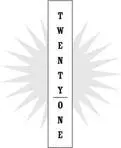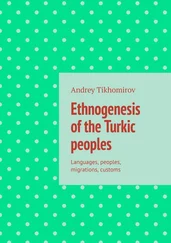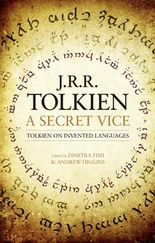Though Brown would never publicly make peace with or accept Lojban, one of the friends who stuck with him in the split told me that “he acknowledged privately that he considered Lojban to be one of his intellectual children, albeit an illegitimate child, that he was still pleased to see succeeding.” Perhaps one day, he thought, after he was gone, the rift would be repaired. But even then, it would still have to be on his terms—they were written into his will. The institute could only accept rapprochement if Bob LeChevalier was no longer involved.
Brown died of a heart attack in 2000 while on a cruise off the coast of the southernmost tip of Argentina, and he was buried there. For about a week after that there was some discussion of reunification on the Lojban message boards—how the vocabularies might merge and so forth—but it faded away quickly. All the action was in Lojban anyway. And that’s where it stayed.

To all the language curmudgeons out there who insist that people ought to speak more logically , I say, be careful what you wish for. You go on about the “logical” mismatch between “everyone” and “their” in perfectly normal-sounding sentences like “Everyone clapped their hands.” You argue that phrases like “very unique” and “sufficiently enough” don’t make logical sense. You harp on “hopefully” and “literally” and “the reason is because,” all the while calling logic to your side to defend your righteous anger.
Before you judge me as some kind of “anything goes” language heathen, let me just say that I’m not against usage standards. I don’t violate them when I want to sound like an educated person, for the same reason I don’t wear a bikini to a funeral when I want to look like a respectful person. There are social conventions for the way we do lots of things, and it is to everyone’s benefit to be familiar with them. But logic ain’t got nothin' to do with it.
And oh, how grateful I am. Do you know how good we have it, how much easier our speaking lives are made by the fact that language and logic part ways? Consider the word “and.” Why, you barely have to know what you mean when you say it! When you say you “like ham and eggs,” do you have to specify whether you like each of those things as evaluated on its own merits separately or whether you like them served together as an entrée? No. You just lazily throw out your “and” and let context do the rest of the work for you. When you say you “woke up and ate breakfast,” do you mean that you woke up first and then ate breakfast? Or did you do the two things simultaneously? Or maybe your breakfast was asleep, so you woke it up and then ate it. Pshaw, you say. You know what I mean. Perhaps I do, says the Lojbanist. Perhaps I don’t.
There are many ways to say “and” in Lojban. If you use the word .e in the following sentence (the stands for a slight pause):
la djan.e la alis. pu bevri le pipno “John and Alice carried the piano.”
you assert two propositions: “John carried the piano” and “Alice carried the piano.” Maybe they took turns. Maybe one of them did it in 1963 and the other one did it yesterday. But this sentence does not apply to the situation where John and Alice carried the piano together. For that you would use joi :
la djan. joi la alis. pu bevri le pipno “John and Alice (as mass entity) carried the piano.”
You would be wrong to use joi , however, if you wanted to say, “John and Alice are friends.” For that situation you must use jo’u:
la djan. jo’u la alis. pendo “John and Alice (considered jointly) are friends.”
If you used joi here, you would have said John and Alice massed together form some kind of friend entity. If you used e , you would have said that John is a friend (of someone) and Alice is a friend (of someone), and maybe they don’t even know each other.
There are at least twenty ways to say “and” in Lojban. But that’s nothing compared with what happens when you get into “or” and “if.” Even if you master the many, many rules pertaining to those little words, you’ve still barely begun to scratch the surface of the tip of the iceberg that is Lojban.
Frankly, the thought of trying to capture Lojban in a nutshell for you—something I have tried to do with the languages I’ve discussed in previous chapters—fills me with despair. There is just so much. The language is specified to within an inch of its life. The reference grammar comes to over six hundred pages. This doesn’t even include a dictionary.
I read the whole thing—I swear I did. And I’ll tell you, not only did I still not speak Lojban, but I started to lose my ability to comprehend English.
“How many Lojbanists does it take to change a broken light-bulb?” goes the old Lojban joke. “Two: one to decide what to change it into and one to decide what kind of bulb emits broken light.” The further I waded into Lojban, the more everything I heard seemed to be filtered through the sensibilities of a bratty, literal-minded eight-year-old—“You love birthday cake? Well, why don’t you marry it?” “Can you use the bathroom? I don’t know, can you?”—with the difference that while the eight-year-old knows what you really mean, my lapses of understanding were genuine. One day during my weeklong immersion in the Lojban grammar, I was watching an Elmo video with my son when a friendly puppet character popped up to ask, “What are the two numbers that come after the number 6?” I had no idea what this puppet was getting at. “What the hell does she mean?” I wondered. “There are an infinite number of numbers that come after the number 6.” I honestly did not know what the answer was supposed to be until the video told me (it’s 7 and 8, by the way).
Was this some kind of Whorfian effect? Well, no. It was more of a Freudian effect—like when you read a little Freud and suddenly everything starts to look like a penis. If someone keeps calling your attention to hidden meanings, or distinctions in meanings, you may start to see them. Your view of the world can be shaped by lots of things, but the Whorfian hypothesis wants only to know which parts are shaped by the language you speak. And I did not speak Lojban. In fact, after reading the grammar, I was pretty sure it was impossible for anyone to speak it.
But people do speak it. Well, they sort of do. I saw this for myself when I attended Logfest ( jbonunsla in Lojban), a gathering of about twelve computer guys (plus Nora) that took place in 2006. Bob and Nora had stopped hosting Logfest at their home a few years before, not because they were unwilling, but because, as Bob told me, “I think the newer members wanted something a little more formal than the accommodations we provided. They wanted to stay in a hotel, eat at restaurants, more of an official conference-type thing.” The Logfest I attended was held at Phil-con, “the [Philadelphia] region’s premiere conference of Science Fiction and Fantasy.” We got bumped out of one and then another room we had been promised when it turned out that an author signing or panel discussion had already been scheduled for that space, and so we ended up crowded around a coffee table in the eighth-floor, end-of-hall suite that a few of the participants were sharing. This made it hard for interested newcomers to drop in and hear the presentations designed to entice them into joining the cause, so talks like “What Is Lojban?” and “Introductory Lojban Class” ended up being preached to the choir.
Читать дальше













